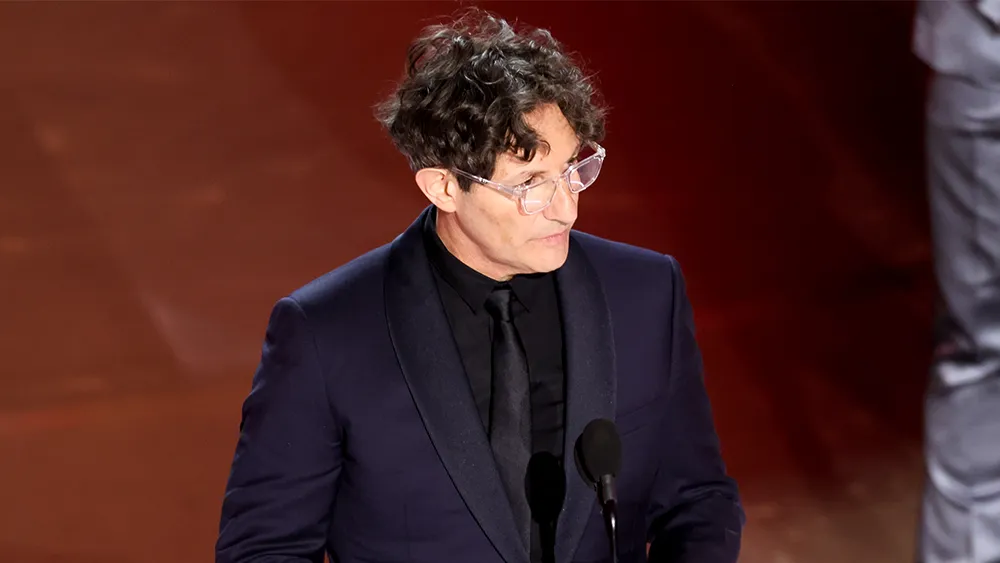No products in the cart.
The Zone of Interest” Director’s Oscar Speech Sparks Debate
Controversy has erupted in the aftermath of Jonathan Glazer’s acceptance speech at the 96th Annual Oscars, where his film “The Zone of Interest” won the Best International Feature Film award. Glazer’s speech, which drew attention to the current conflict in Gaza, has sparked intense debate and divided opinions.

As Glazer took the stage to accept the award for his Holocaust drama set in Auschwitz, he delivered a speech that drew parallels between the themes of his film and the ongoing Israel-Hamas war. While Glazer’s intention was to highlight the relevance of his film’s message to contemporary issues, the ambiguity of his remarks left many viewers puzzled and sparked a flurry of reactions.
In his speech, Glazer emphasized the importance of reflecting on the present and the dangers of dehumanization. He spoke of the need to resist the forces of dehumanization and alluded to the victims of both historical atrocities and current conflicts, including the ongoing violence in Gaza.
However, the interpretation of Glazer’s words varied widely. Some praised him for using his platform to address important issues and advocate for the voiceless. Asif Kapadia, director of the documentary “Amy,” commended Glazer for speaking truth to power and standing up for marginalized communities.
On the other hand, Glazer’s speech drew sharp criticism from others, particularly from those who felt that he had minimized the Holocaust or misrepresented the Israeli-Palestinian conflict. Jonathan Greenblatt, CEO of the Anti-Defamation League, expressed disappointment with Glazer’s remarks, accusing him of disregarding the significance of the Holocaust and mischaracterizing Israel’s actions in the conflict.
The controversy surrounding Glazer’s speech reflects broader tensions within Hollywood and society at large regarding the Israel-Hamas conflict and issues of censorship, free speech, and historical memory. The polarization of opinions on Glazer’s speech underscores the complexity of navigating sensitive topics in public discourse.
Moreover, Glazer’s speech has reignited debates about the role of artists and filmmakers in addressing political issues and advocating for social justice. While some believe that artists have a responsibility to use their platforms to promote change and raise awareness, others argue that art should remain apolitical and focus solely on aesthetic expression.
In addition to the content of Glazer’s speech, attention has also been drawn to the individuals associated with him on stage. The presence of Len Blavatnik, a controversial figure with ties to Russian oligarchs and GOP causes, alongside Glazer raised eyebrows and added another layer of intrigue to the situation.
Overall, Glazer’s Oscar speech has sparked intense debate and raised important questions about the intersection of art, politics, and morality. As the controversy continues to unfold, it serves as a reminder of the power of words and the complexities of addressing sensitive topics in public forums.

